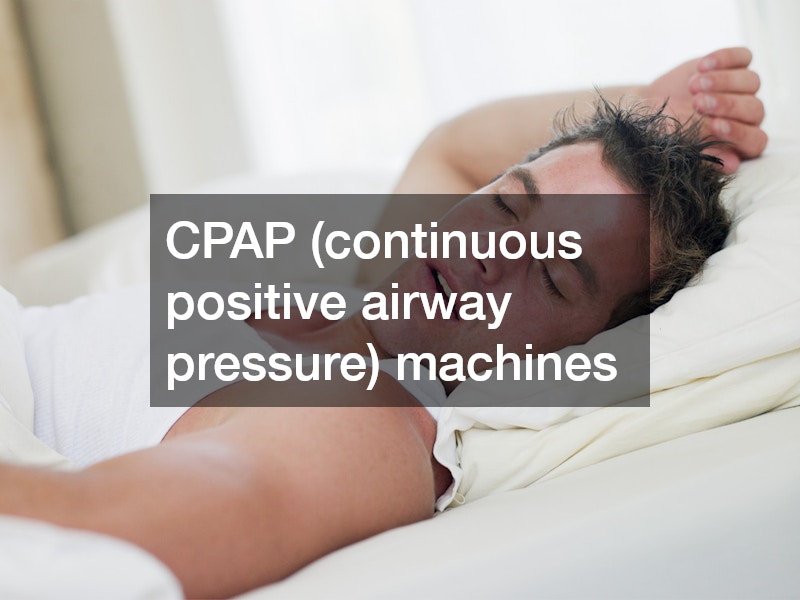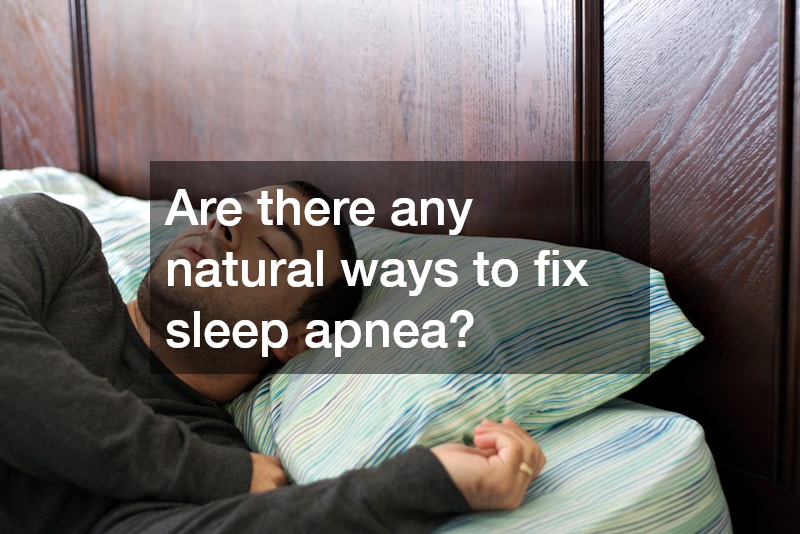Obstructive Sleep Apnea Symtoms, Causes and Treatments

If you’ve been having difficulty sleeping, you may suffer from sleep apnea. If you bring your concerns to your doctor, they should refer you to a sleep specialist. To confirm the diagnosis of sleep apnea, you’ll need to undergo a sleep study, where a specialist will use diagnostic equipment to track your breathing during the sleep cycle. If the test determines you have sleep apnea, the doctor might prescribe one of the many types of CPAP (continuous positive airway pressure) machines.
According to the Mayo Clinic, when someone has sleep apnea, the muscles in the back of their throat relax more easily. With a relaxed throat, the air passages will be blocked when trying to breathe in, causing snoring. Your doctor can explain how various breathing aids for sleep can help to keep your throat muscles open. Most CPAP clients learn that snoring could be a cause that leads to needing CPAP machines.
Are there any natural ways to fix sleep apnea? According to VeryWell Health, avoiding smoking and alcoholic beverages can be helpful. Even people who use CPAP machines may seek additional tips for sleeping with sleep apnea. According to GoodRx, these tips include using a humidifier and sleeping on your side.

If you have trouble getting a restful sleep, or your friends and family members tell you that your breathing is labored or loud when you sleep, it’s possible that you’re suffering from obstructive sleep apnea, or OSA.
Obstructive sleep apnea causes the muscles in the back of your throat to relax. This seems like a good thing until you consider that these muscles support your soft palate, uvula and tonsils as well as your tongue and the side walls of your throat.
When OSA causes your muscles to relax, your airways are closed or narrowed when you breathe in, preventing you from getting adequate air when you sleep. Your brain registers the lower level of oxygen getting to your bloodstream and forces you to wake up, often with a gasping, snorting or choking sound that you probably won’t even remember when you wake up.
This allows you to breathe, but these brief moments of consciousness take their toll. Sleep apnea sufferers are unlikely to get the REM sleep they need since their body wakes them up constantly to get air. OSA patients often report drowsiness, aggravation or lethargy while awake as a result of their interrupted sleep.
Most OSA patients won’t even realize how often their sleep was interrupted. In fact, many will report getting a full night’s sleep, not remembering the moments throughout the night when their body woke them up.
People with asthma or deviated septums may be more at risk for developing OSA, and obesity or a high body-mass-index can also play a role. OSA may also be related to genetics or face and neck shape.
Fortunately, CPAP machines and BiPAP machines are both designed to treat OSA. Patients who forego treatment are at a higher risk for heart problems, stroke and other serious medical conditions that have been linked to OSA.
If you suspect that you have OSA, talk to your doctor about diagnosis and treatment options as soon as possible.


